Lee Kuan Yew, Founder And First Prime Minister Of Singapore, Dies At 91
Lee Kuan Yew, the founding father and long-time Prime Minister of Singapore, died over the weekend at the age of 91:
SINGAPORE — Lee Kuan Yew, who as its founding father and first prime minister transformed the tiny outpost of Singapore into one of the wealthiest and least corrupt countries in Asia, died on Monday morning. He was 91.
His death, at the Singapore General Hospital, was announced by Prime Minister Lee Hsien Loong, Mr. Lee’s eldest son, on his official website.
Mr. Lee was prime minister from 1959, when Singapore gained full self-government from the British, until 1990, when he stepped down. Late into his life he remained the dominant personality and driving force in what he called a First World oasis in a Third World region.
The nation reflected the man: efficient, unsentimental, incorrupt, inventive, forward-looking and pragmatic.
“We are ideology-free,” Mr. Lee said in an interview with The New York Times in 2007, stating what had become, in effect, Singapore’s ideology. “Does it work? If it works, let’s try it. If it’s fine, let’s continue it. If it doesn’t work, toss it out, try another one.”
His leadership was criticized for suppressing freedom, but the formula succeeded. Singapore became an admired international business and financial center.
An election in 2011 marked the end of the Lee Kuan Yew era, with a voter revolt against the ruling People’s Action Party. Mr. Lee resigned from the specially created post of minister mentor and stepped into the background as the nation began exploring the possibilities of a more engaged and less autocratic government.
Since Singapore separated from Malaysia in 1965 — an event Mr. Lee called his “moment of anguish” — he had seen himself in a never-ending struggle to overcome the nation’s lack of natural resources, a potentially hostile international environment and a volatile ethnic mix of Chinese, Malays and Indians.
“To understand Singapore and why it is what it is, you’ve got to start off with the fact that it’s not supposed to exist and cannot exist,” he said in the 2007 interview. “To begin with, we don’t have the ingredients of a nation, the elementary factors: a homogeneous population, common language, common culture and common destiny. So, history is a long time. I’ve done my bit.”
His “Singapore model” included centralized power, clean government and economic liberalism. But it was also criticized as a soft form of authoritarianism, suppressing political opposition, imposing strict limits on free speech and public assembly, and creating a climate of caution and self-censorship. The model has been studied by leaders elsewhere in Asia, including China, and the subject of many academic case studies.
…)
Mr. Lee was proud to describe himself as a political street fighter more feared than loved.
“Nobody doubts that if you take me on, I will put on knuckle-dusters and catch you in a cul-de-sac,” he said in 1994. “If you think you can hurt me more than I can hurt you, try. There is no other way you can govern a Chinese society.”
A jittery public avoided openly criticizing Mr. Lee and his government and generally obeyed its dictates.
“Singaporeans are like a flea,” said Mr. Lee’s political tormentor, J.B. Jeyaretnam, who was financially broken by libel suits but persisted in opposition until his death in 2008. “They are trained to jump so high and no farther. Once they go higher they’re slapped down.”
In an interview in 2005, Mr. Jeyaretnam added: “There’s a climate of fear in Singapore. People are just simply afraid. They feel it everywhere. And because they’re afraid they feel they can’t do anything.”
Mr. Lee’s vehicle of power was the People’s Action Party, or P.A.P., which exercised the advantages of office to overwhelm and intimidate opponents. It embraced into its ranks the nation’s brightest young stars, creating what was, in effect, a one-party state.
What Singapore got was centralized, efficient policy making and social campaigns unencumbered by what Mr. Lee called the “heat and dust” of political clashes.
One government campaign tried to combat a falling birthrate by organizing, in effect, an official matchmaking agency aimed particularly at affluent ethnic Chinese.
Mr. Lee also promoted the use of English as the language of business and the common tongue among the ethnic groups, while recognizing Malay, Chinese and Tamil as other official languages.
With tourists and investors in mind, Singapore sought to become a cultural and recreational hub, with a sprawling performing arts center, museums, galleries, Western and Chinese orchestras and not one but two casinos.
Despite his success, Mr. Lee said that he sometimes had trouble sleeping and that he calmed himself each night with 20 minutes of meditation, reciting a mantra: “Ma-Ra-Na-Tha.”
“The problem is to keep the monkey mind from running off into all kinds of thoughts,” he said in an interview with The Times in 2010. “A certain tranquillity settles over you. The day’s pressures and worries are pushed out. Then there’s less problem sleeping.”
Singapore is hardly an ideal place from the perspective of those of us concerned about political and personal liberty, but there is no denying that it has been an unparalleled economic success and has stood as a stark comparison at times to the situation in neighboring Malaysia and Indonesia. No doubt, a part of that economic success can be attributed to the stability that that Lee’s brand of authoritarian rule, which has largely survived his retirement, brought to the country. Indeed, one can hardly remember the last time that Singapore itself was the subject of significant international news attention. The last time I can recall off the top of my head was in the early 90s when an 18 year old American named Michael Fay ran afoul of the city-state’s laws when he was caught vandalizing cars and sentenced to caning, a sentence that brought some degree of international criticism. For the most part, though, the nation flies under the radar and has become a hub of international business and tourism that rivals Hong Kong.
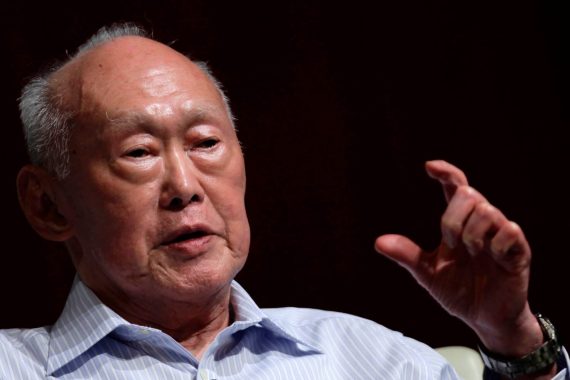

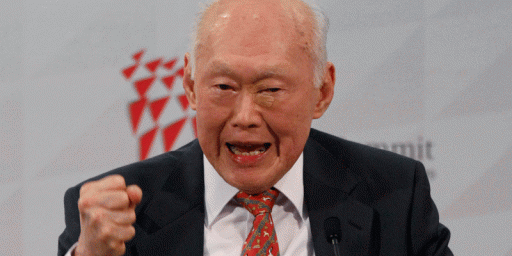
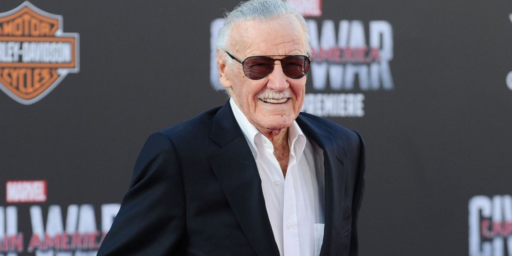
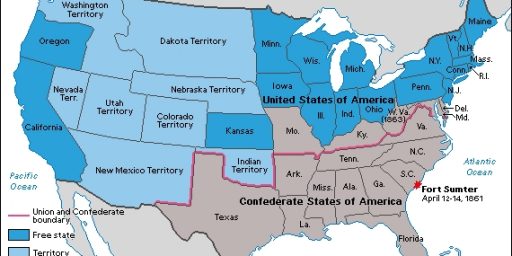
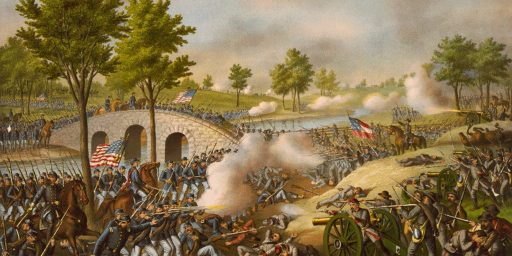
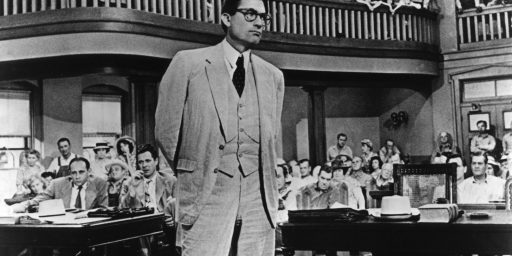
I find the encomiums being heaped on the late PM troubling. How do you evaluate leaders? By what they do or by the outcomes? I don’t think the answer is obvious or certain. As a thought exercise list the things he did without taking Singapore’s economic success into account. Otherwise you’re merely arguing that the ends justify the means.
Is it possible that Singapore prospered despite his actions rather than because of them? And that with more freedom it would have prospered even more? I don’t know the answers to these questions but I think they’re worth asking.
@Dave Schuler:
Those aren’t unfair questions. Of course, I also have to wonder if Singapore would be as prosperous as it is today if it were not for the independence movement that Lee was the driving force behind.
Economic prosperity really doesn’t mean all that much if it isn’t coupled with political freedom…
@An Interested Party:
Agreed, but is the political situation in Singapore really worse than in, say, Malaysia, or Indonesia, or Thailand? And lets not even get started about the People’s Republic of China
I have no particular opinion on Lee, not knowing enough about Singapore to support an opinion. But it is necessary to have some degree of prosperity in order to have any meaningful freedom. A peasant may be free to do what he wishes, but his options may be only begging, theft, or continuing as is. In the same way, despite bitching by the RW and libertarians, Obamacare has increased the net liberty in the country.